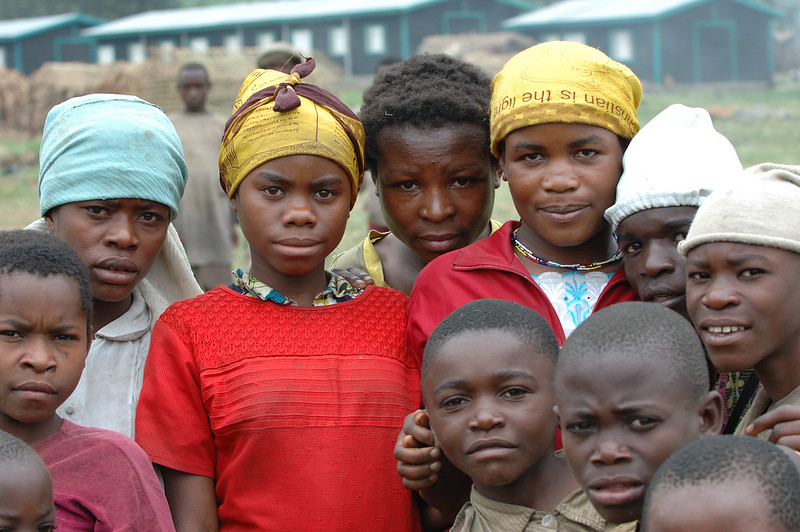5 Charities Tackling Extreme Poverty in the DRC
 The Democratic Republic of Congo (DRC) faces one of the highest extreme poverty rates globally. In 2023, the World Bank estimated that 74.6% of its population lives on less than $2.15 per day, ranking it second only to India in terms of the number of people living in extreme poverty. Much of this dire situation stems from ongoing regional violence between government forces and rebel militias, which has displaced more than five million people in recent years. Despite immense challenges, numerous charities actively combat extreme poverty in the DRC, focusing on malnutrition and disease. Key organizations are making significant differences in the lives of millions of Congolese, revealing the profound impact of international aid in one of the world’s most impoverished regions. Here are five charities tackling extreme poverty in the DRC.
The Democratic Republic of Congo (DRC) faces one of the highest extreme poverty rates globally. In 2023, the World Bank estimated that 74.6% of its population lives on less than $2.15 per day, ranking it second only to India in terms of the number of people living in extreme poverty. Much of this dire situation stems from ongoing regional violence between government forces and rebel militias, which has displaced more than five million people in recent years. Despite immense challenges, numerous charities actively combat extreme poverty in the DRC, focusing on malnutrition and disease. Key organizations are making significant differences in the lives of millions of Congolese, revealing the profound impact of international aid in one of the world’s most impoverished regions. Here are five charities tackling extreme poverty in the DRC.
Oxfam
Oxfam has been active in the DRC since 1961, a year after the country’s independence, with current operations spanning six provinces. The organization’s efforts are primarily directed toward providing emergency relief to those affected by crises. This includes supplying clean drinking water, sanitation and food to approximately 700,000 internally displaced people. Oxfam is also dedicated to ensuring longer-term access to clean water for communities and schools throughout the country. Additionally, Oxfam has been instrumental in fighting the country’s recent Ebola outbreak, the second most severe in history. Its public health initiatives aimed at curbing the virus’s spread have reached more than 750,000 people since the outbreak began, representing about 1% of the national population.
Concern Worldwide
Concern Worldwide’s efforts in the DRC closely align with tackling issues similar to those addressed by Oxfam, having provided immediate life-saving support to more than 400,000 individuals in 2023, including nutrition assistance. Additionally, the charity places a significant focus on the gender-based aspects of extreme poverty in a country where more than half of all women experience violence from a partner at some point. Concern’s Graduation program not only aids families in escaping extreme poverty through training and financial assistance but also incorporates gender equality sessions for male community members. This initiative has led to more than 63% of families reporting increased female consultation on household decisions, effectively mitigating the severe impacts of extreme poverty on women.
War Child
War Child has focused on addressing the vulnerability of children to sexual violence in the DRC amid ongoing intrastate violence. Since beginning its work in the country in 2004, the charity has noted that more than 74,000 cases of sexual violence were reported between Jan. and Sept. 2021, with many more likely unreported. Currently, War Child concentrates on child protection and psychosocial support for victims of sexual violence, supporting 67,532 children and their families in 2023.
The International Rescue Committee
The International Rescue Committee (IRC) tackles extreme poverty in Congo by focusing on four key provinces. The charity provides emergency care to vulnerable populations, offering access to health care, water, shelter and sanitation. It also empowers local communities to engage in peace-building initiatives, promoting economic recovery in areas affected by conflict. Additionally, the IRC emphasizes support for women and girls by providing reproductive health services and offering counseling and legal assistance to victims of sexual assault.
Tearfund
Tearfund’s work in the Republic of Congo focuses on water, sanitation and hygiene (WASH) projects, addressing the needs of eight million people without proper sanitation or clean water. The charity provides access to safe water and educates communities on effective hygiene practices. Additionally, Tearfund promotes sustainable farming to combat hunger-related poverty. Like many other charities, Tearfund supports victims of physical or sexual violence. Its “Transforming Masculinities” approach aims to reduce stigma for survivors and decrease the incidence of intimate partner violence.
Looking Ahead
Addressing the housing crisis in rapidly urbanizing regions requires multifaceted solutions that balance affordability and sustainability. As regional conflict continues in the country, leaving more than 7.2 million internally displaced people, the need for emergency aid in the country continues. Programs like Thailand’s National Housing Authority demonstrate potential for success by combining community development with secure housing initiatives. Ensuring access to affordable housing benefits individual families and stimulates broader economic growth. This approach highlights its importance as a key strategy for poverty reduction and sustainable development.
– Ben Evans
Ben is based in Abbots Langley, Hertfordshire, UK and focuses on Good News for The Borgen Project.
Photo: Flickr
